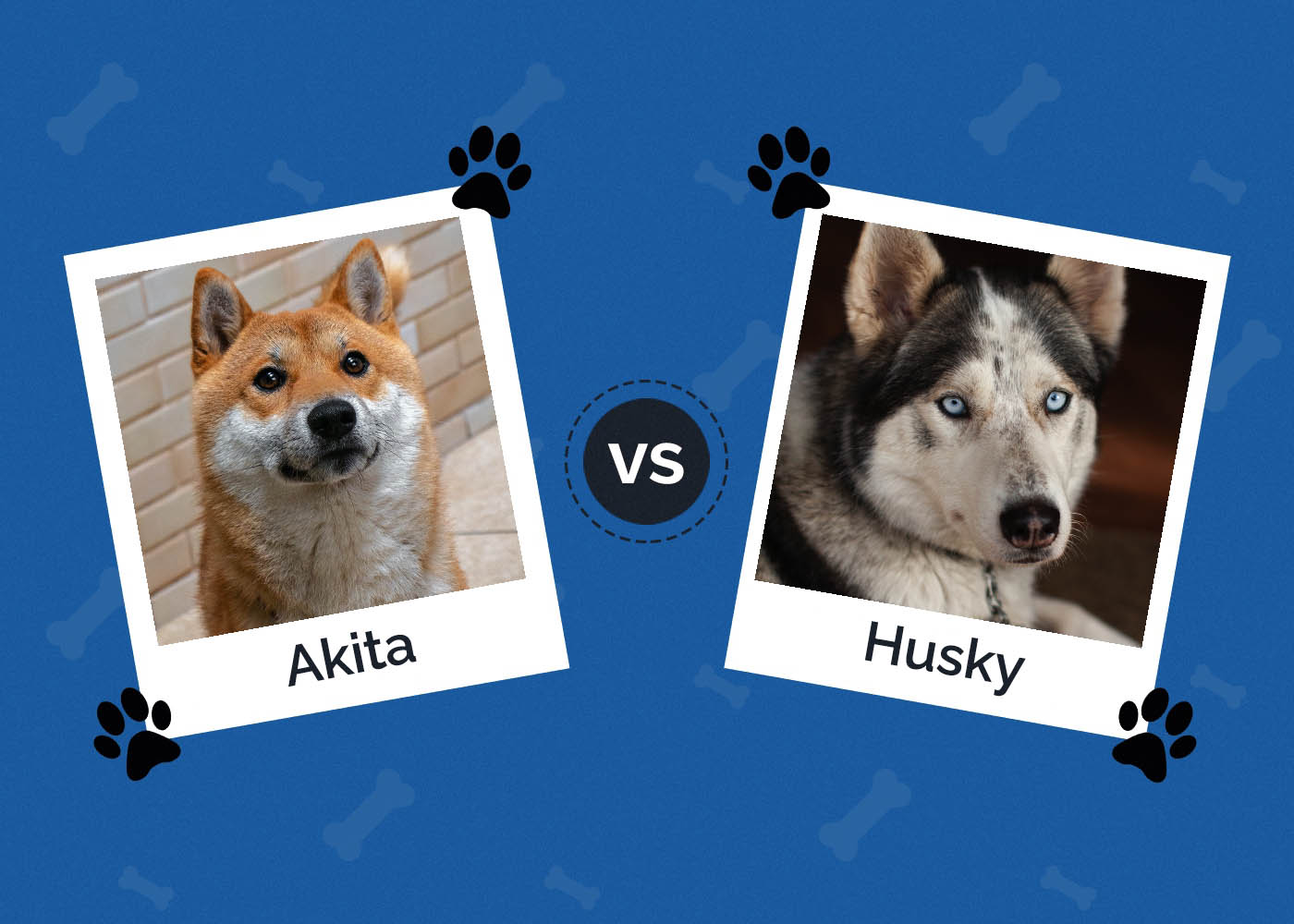Are German Shepherds Loyal? Breed Facts & FAQs

Updated on

German Shepherd Dogs (GSDs) are among the most popular dog breeds in the United States and indeed, the world for a wide variety of reasons. They are highly adaptable, leading to their use as police and search-and-rescue dogs, they’re highly intelligent, they make wonderful family dogs, and they are great exercise partners! These are all fantastic reasons to bring home a GSD, but what about loyalty? Are German Shepherds loyal dogs?
While loyalty in dogs can depend on several different factors, like training and upbringing, German Shepherds are undoubtedly one of the most loyal dogs around and are revered for it. Read on to find out more about how loyal these gorgeous dogs are.
Why Are German Shepherds So Loyal?
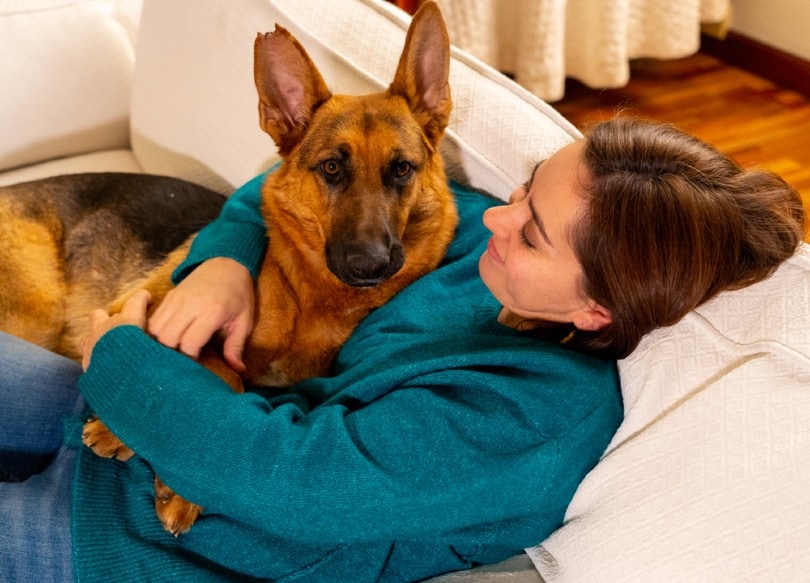
German Shepherds were originally bred as herding dogs — hence the name — and as such, they have spent their lives working closely with humans. Herding dogs need to have a strong connection with their owner to perform their job properly and need to be able to work as part of the pack. With this instinct comes an innate loyalty that is wired into their DNA, something that has been developed as a necessity for them to work as a pack.
While it’s true that a dog’s instincts and breeding play huge parts in their level of loyalty and dedication, their training and upbringing are vital too. In short, no dog, including a German Shepherd, is simply born loyal. It takes a great deal of time and dedication to nurture the trait in your dog.
German Shepherd Intelligence
German Shepherds are ranked as the third most intelligent dog in the world. This ranking comes from the now famous book, “The Intelligence of Dogs,” by Stanley Coren. GSDs were able to learn a new command in five or fewer repetitions and obey it almost 100% of the time.
But what does this have to do with loyalty? The more intelligent a dog is, the quicker they learn and the easier it is to train them. Loyalty is largely a learned trait, and since German Shepherds are easily trained, they can easily be taught what it means to be loyal. With the right training, your dog will enjoy pleasing you, building an immense amount of trust and thus, loyalty.
Encouraging Loyalty In Your German Shepherd
Since loyalty is largely a learned trait, it’s vital that you know the proper techniques to encourage it in your German Shepherd. This requires a great deal of time and dedication on your part, and you need to begin the process the day that you bring your GSD home, to set the foundation for trust between you and your pooch.
Dog Training
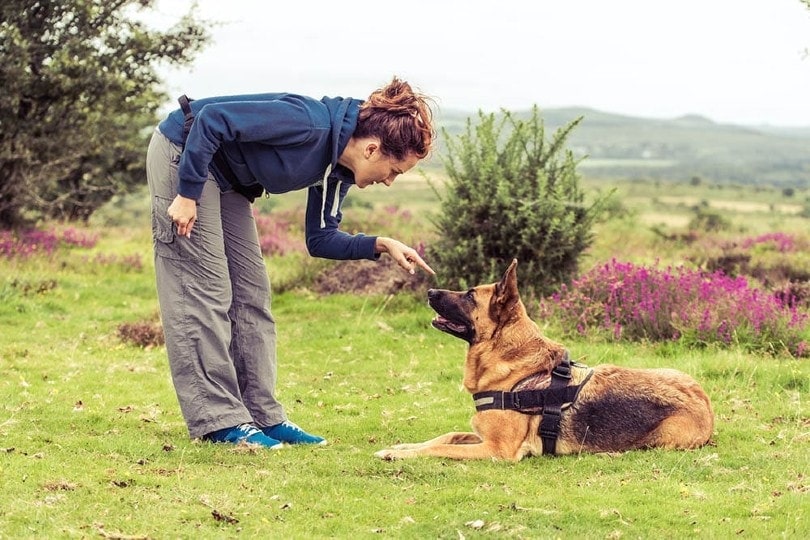
Training is the first and most important step in establishing trust and loyalty with your GSD. The correct training will help establish a strong bond between you and your dog, building the foundation for loyalty. The best training method for GSDs is reward-based or positive reinforcement training.
This type of training rewards your dog for good behavior while ignoring unwanted behavior, and thus, it encourages good behavior from your dog without the need for reprimanding. Harsh training methods can have a detrimental effect on the relationship between you and your dog, causing a lack of trust and consequently, a lack of loyalty from them.
Dog Socialization
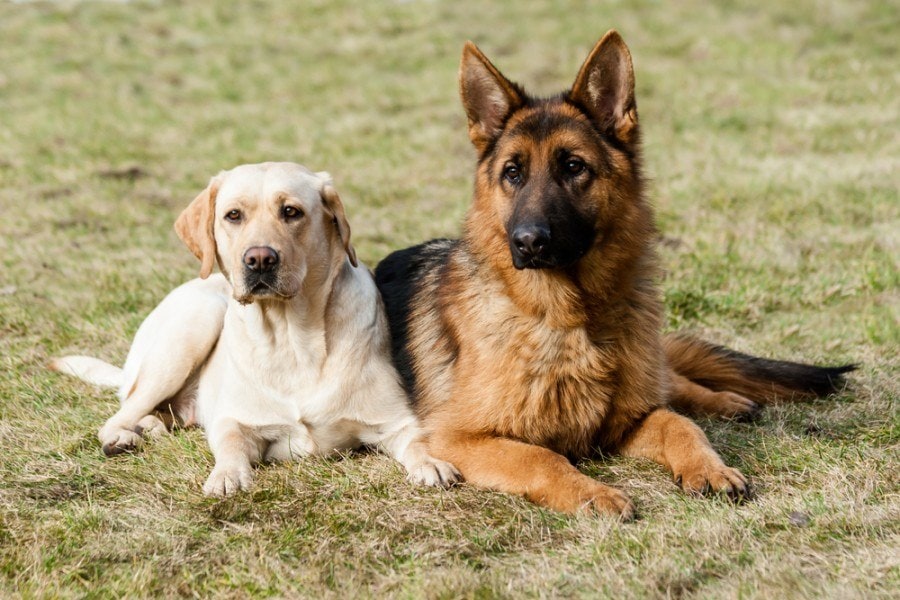
Getting your GSD socialized from an early age will help in training and in the bond with your dog. Your dog needs to be exposed to a variety of different environments and dogs while being taught to still obey commands in these situations. This is vital for powerful dogs like GSDs, as they need to be able to follow directions when they are distracted and excited. Your GSD will see you as their trusted companion among other dogs, animals, and environments, earning you their trust and loyalty.
Dog Exercise
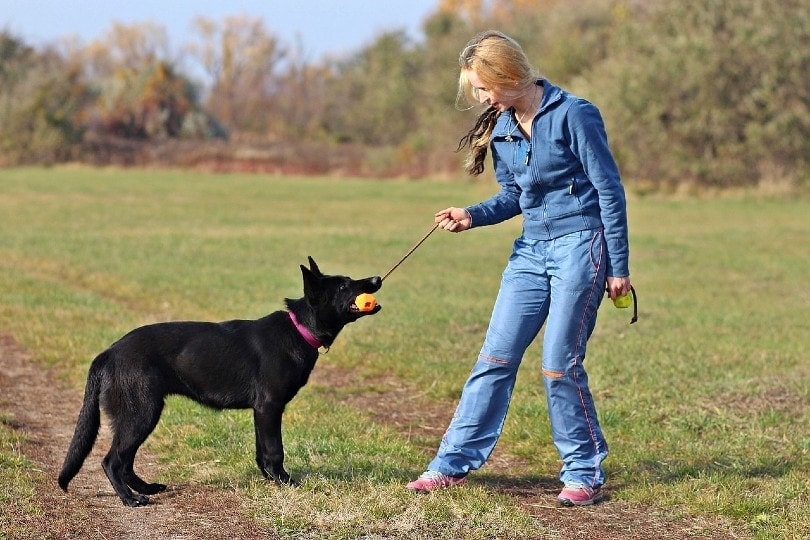
Exercise is vital to the health of any dog breed, but especially with active, powerful German Shepherds. Without enough exercise, your dog can quickly become bored and under-stimulated, which can lead to undesirable behaviors and even aggression. Exercise is also a great way to bond with your GSD, further establishing their trust and loyalty.
Do German Shepherds Bond With One Person?
German Shepherds are known to be among the best family dogs around, but they do have the reputation of bonding with only one member of the family. Again, no GSD is born this way and it is not an innate trait — it all comes down to training.
It is certainly true that a GSD will be more loyal to one person if they are the person giving the dog training, food, and exercise, but they will still be loyal to the rest of the family. However, if this responsibility is spread out evenly among family members, your GSD is unlikely to favor one person over another. Try to get all the members of your family to feed, walk, train, and play with your German Shepherd to promote a more even, pack-orientated balance.
Final Thoughts
German Shepherds are among the most loyal dogs in the world, but they are not born this way. Since they have high intelligence and are easily trainable, it is far easier to nurture this trait and bring it out of a GSD, but it takes time and dedication. No dog is born loyal, not even GSDs, but they are more inclined toward dedication and loyalty than many other breeds, and they are highly sought-after and revered for this reason.
Featured Image Credit: nori jaafer, Pixabay




